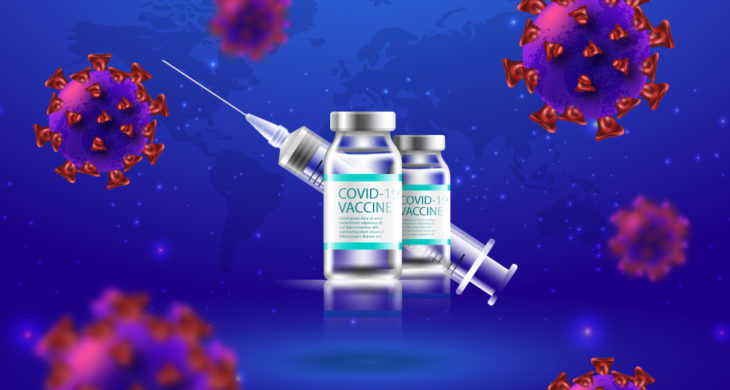
Date: 9th November 2020
As many countries across the world are facing a second lock down, the race to develop COVID-19 vaccines may be heading into the final furlong. Currently, only a handful of COVID-19 vaccines are in Phase 3 clinical trials and none are complete to date. However, today Pfizer and BioNTech announced their mRNA-based vaccine, BNT162b2, is over 90% effective in preventing COVID-19, in the first interim efficacy analysis of their Phase 3 study.
We reported the start of the Phase 3 trial for BNT162b2 at the end of July, and it has now enrolled 43,538 participants to date, 38,955 of whom have received a second dose of the vaccine candidate as of November 8, 2020. Now, an external and independent committee has evaluated 94 confirmed cases of COVID-19 in trial participants.
Vaccine efficacy rate above 90%
The case split between vaccinated individuals and those who received the placebo indicated a vaccine efficacy rate above 90%, at seven days after the second dose, which equated to protection after 28 days from the first vaccination. The monitoring committee did not report any serious safety concerns and recommended the continuation of the study. This is set at 164 confirmed cases, which will allow the collection of further data and characterisation of the vaccine candidate’s performance against other study endpoints.
The participants here were included without evidence of prior SARS-CoV-2 infection however, the study will also evaluate its potential to provide protection against COVID-19 in those who have had prior exposure to SARS-CoV-2. A further endpoint will include potential vaccine prevention against severe COVID-19. The team are also wishing to add a secondary endpoint, with the approval of the US Food and Drug Administration (FDA), aligning it to other studies – evaluating efficacy based on cases accruing 14 days after the second dose. This should allow comparison between trials of other vaccines and enable cross-trial learnings.
Pfizer and BioNTech estimate that the required data specified by the FDA in its guidance for potential Emergency Use Authorization will be achieved by the 3rd week in November. They expect to supply globally up to 50 million vaccine doses in 2020 and manufacture up to 1.3 billion doses in 2021.
First-in-class mRNA vaccine
Interestingly, if this proves successful and the BNT162b2 mRNA vaccine was to be approved for COVID-19 it would represent a first-in-class. Currently no such type of vaccine has been approved for an infectious disease. Mechanistically, they are broadly similar to adenoviral therapies, rather than invoking an immune response directly by introducing small or inactivated doses of the whole disease-causing organism, or viral protein epitopes – as is the traditional approach – mRNA vaccines work by stimulating the host to produce viral proteins. The result in both cases is that an immune response is invoked which then ‘primes’ the systems for future attacks. Whilst, mRNA vaccines represent a more ‘experimental’ approach –they are potentially more potent and straightforward to produce than traditional vaccines, meaning scaling up production may be far easier.
Other COVID-19 vaccine candidates
Whilst there are now currently 47 candidate vaccines in clinical evaluation for COVID-19 there is much hope resting on those that are in Phase 3 trials. The two main rivals and front runners in the race were Moderna, who also have a mRNA-based vaccine, mRNA-1273, and the University of Oxford and AstraZeneca’s ChAdOx1 nCoV-19 vaccine, which is based on a well-studied and safe vaccine type – adenovirus vector. However, whilst both should have their trial data by the end of the year, it is looking like Pfizer and BioNtech will cross the finish line first.
The demand for any successful COVID-19 vaccine will go beyond anything we’ve previously experienced. Indeed, BioNTech has recently acquired a manufacturing site from Novartis to expand their vaccine production capacity to reach demand. Certainly, from a manufacturing and supply chain perspective having several approved vaccines may ease the burden on any one company and ensure global demand is met.
Today’s announcement offers much hope in our battle to control COIVD-19 and the final data will be greatly anticipated in a matter of days.
For more information please see the press release from BioNTech


